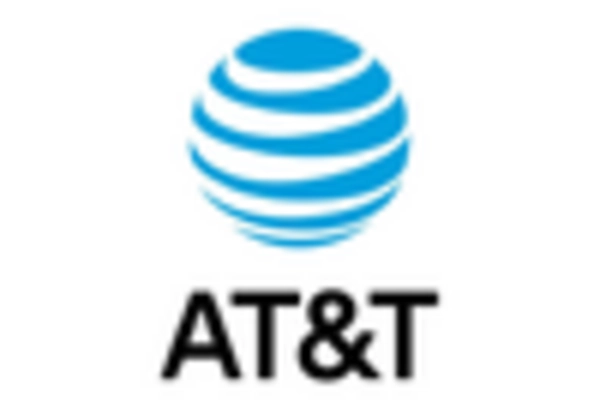Market Share
Tracking as a Service Market Share Analysis
The Tracking as a Service (TaaS) market is experiencing significant trends that are reshaping the industry landscape. One prominent trend is the increasing demand for real-time tracking solutions across various sectors. Businesses are seeking TaaS providers that can offer instant and accurate tracking information for assets, vehicles, and even personnel. This trend is driven by the need for enhanced operational efficiency, improved security, and better decision-making based on up-to-the-minute data. As a result, TaaS providers are focusing on developing and optimizing technologies that enable real-time tracking capabilities, such as GPS and IoT integration.
Another notable trend in the Tracking as a Service market is the integration of Artificial Intelligence (AI) and machine learning capabilities. TaaS providers are leveraging these technologies to enhance predictive analytics, anomaly detection, and pattern recognition within tracking data. AI-driven insights help businesses make proactive decisions, predict potential issues, and optimize their operations. This trend aligns with the growing emphasis on data-driven decision-making, providing TaaS users with more than just location information but actionable intelligence derived from complex tracking data.
The adoption of cloud-based tracking solutions is gaining momentum as businesses recognize the benefits of scalability, flexibility, and accessibility. Cloud-based TaaS allows users to access tracking data from any location, facilitates easy scalability based on business needs, and eliminates the burden of maintaining on-premises infrastructure. This trend reflects the broader shift towards cloud computing across various industries, emphasizing the importance of cost-effective and agile solutions in the Tracking as a Service market.
Security and privacy concerns are influencing the evolution of the TaaS market. As the volume of tracked data increases, there is a growing focus on implementing robust security measures and ensuring compliance with data protection regulations. TaaS providers are incorporating advanced encryption techniques, secure access controls, and anonymization features to address these concerns. Additionally, there is an emerging trend towards transparency and user control, allowing businesses and individuals to have more visibility and control over the tracking data collected and shared.

















Leave a Comment